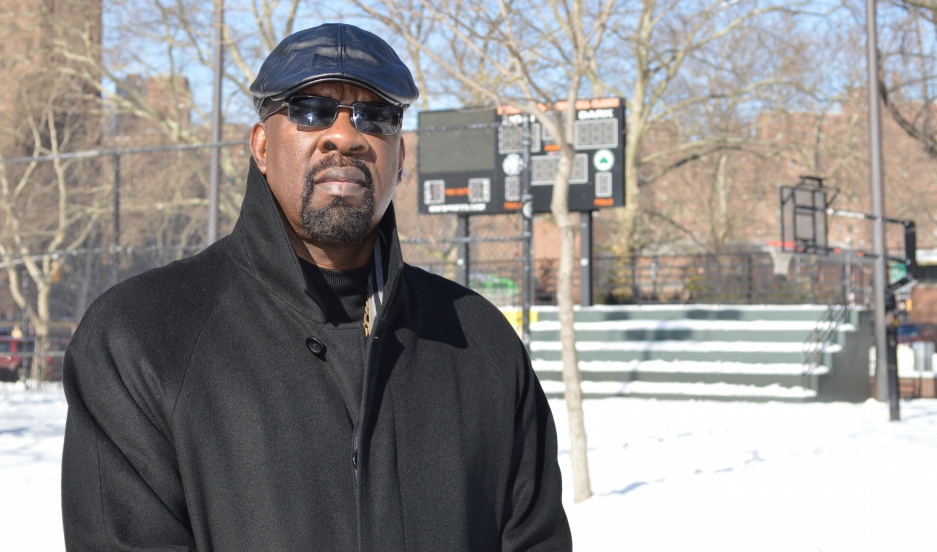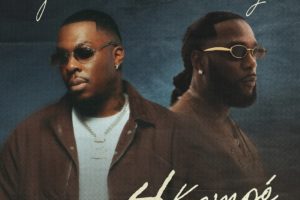
With Haiti’s soccer and Polo team making national news, how exciting would it be if we had our own National basketball team? Former NBA forward Jim Bostic is hoping to start the very first Haitian National Basketball Team by the year 2020.
According to Pri
This windswept patch of Harlem asphalt, at 155th Street and 8th Avenue, is where Bostic first made a name for himself back in the late 1970s.
“They called me Clark Kent,” Bostic says. “They called me Superman. They called me the Human Eraser. They called me all kinds of names that basically lent itself to strength and physicality.”
That’s how things work at Rucker Park: Grace the court, captivate the crowd, get a nickname. It’s how the great Julius Erving became Doctor J. And it’s all part of the flash and style that define this legendary playground.
When Bostic and I meet, it’s bitterly cold and the park is understandably quiet. But as the 6-foot-7, six-time Rucker Park champion recounts, playing here in the ’60s, ’70s, and ’80s was unlike anything we know in the sporting world today.
“When you came here to play, the entire park was filled with people,” he recalls. “There were people that were literally in the trees, there were people that were up on the fences. So when you came here, there was an electricity like no place else in the world.”
The allure of that electricity brought the likes of Wilt Chamberlain, Kareem Abdul-Jabbar and Doctor J to this tiny court to do battle with playground legends. But for the local players, this park was much more than just a basketball court.
“Given our environment and where we came up, most of us didn’t have a lot of means,” Bostic says. “So basketball, for many of us, became a way out — of the confinement of our community, our neighborhood, our level of poverty. And in fact, it wasn’t only about the basketball players, but it was also about the people in the stands. Many of the people in the stands grew up in an environment where they didn’t have any heroes. So for them, a lot of their heroes became the people that they saw on these basketball courts.”
Give the players a way out and give the community something to rally around. If it can work in Harlem, Bostic thought, why not try it in post-earthquake Haiti?
Bostic first visited the island nation just months after the devastating quake of 2010. Since then, he’s committed himself to training Haitian coaches, putting on clinics for Haitian players and working to raise $5 million for a first-of-its-kind national training facility. His ultimate goal is to help build a national basketball program in Haiti by the year 2020.

It’s ambitious, but Bostic is confident it can be done. “They’re going to surprise some people,” he says. “You know, we know this in sports: The underdog can rise up and beat some people.”
We all do love a good underdog story, but is this really realistic? Could a Haitian national basketball team really compete on the Olympic stage?
It turns out Bostic isn’t the only one who thinks so.
“Basketball is like a new language for us in Haiti we’re trying to speak now,” says Pierre Valmera.Valmera grew up in Haiti, and, like his country, he came late to the sport of basketball.
“First time I saw a basketball, I was 15,” he says. “To tell you the truth, I didn’t even know what kind of ball it was. I’m like, ‘Why did white people make a ball so hard?’ And my boy said, ‘No, no dude … This is not for soccer.’”
It’s an easy mistake to make, considering soccer has long been king in Haiti, but Valmera did pick up the new sport — and fast. Within 2.5 years, he had a full scholarship to play at a small college in Tennessee. He excelled on and off the court, and went on to play a few years of pro ball in Switzerland, something very few Haitians have done anywhere in the world.
These days, the 6-foot-8 Valmera is one of the faces of Haitian basketball, and he’s remarkably confident that building up a national basketball team in Haiti will work. “We need to get our pride back,” he says. “I feel like that national team will actually help us wave our flag a little bit higher.”
Valmera lives and works in Boston now, but he’s not just supporting the sport in Haiti from afar. He travels often to his native country, where he puts on youth basketball camps and recruits athletes for a scholarship program he runs called PowerForward. It brings talented young Haitians to play high school basketball in the US. – Continue Reading Here






























Where can i sign up? I’m interested.
look me up when you are in Haiti. I played High School ball at a high level in New York. Like to help with a team.
I wanna be a part of that, I play basketball I’m 6’6 Haitian that play ball
We do look at all of the suggestions you may have supplied with your article. They’re convincing and may certainly get the job done. However, your discussions are extremely speedy education hír. Can you you should stretch these individuals somewhat coming from pursuing occasion? Thank you for a posting.
Hello, my name is Billy. I am part of a non profit organization that provides Orthopedic and General Medical services in Port-de-Paix, Haiti. I am also a basketball skills coach in Phoenix, Az. I am working to bring camps to Port-de-Paix. I would appreciate any help I can give or receive to make this happen. Thank you for listening and for all you’re doing. Billy
Wow i’ve been wondering about when this would come up ever since i was at Petit Seminare. I’m a 5’10 172 lbs athletic Guard who played a year in college , is there a way i can be part of this?